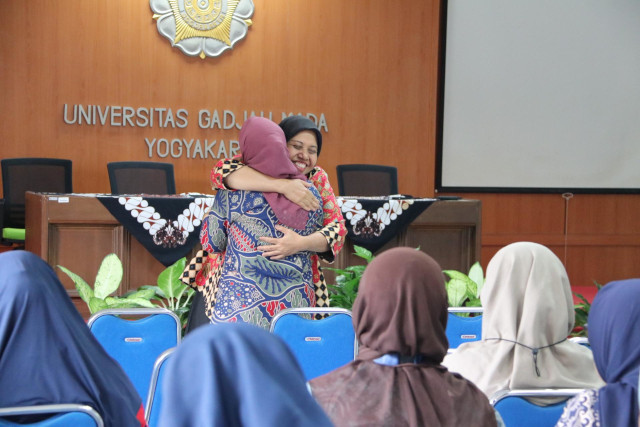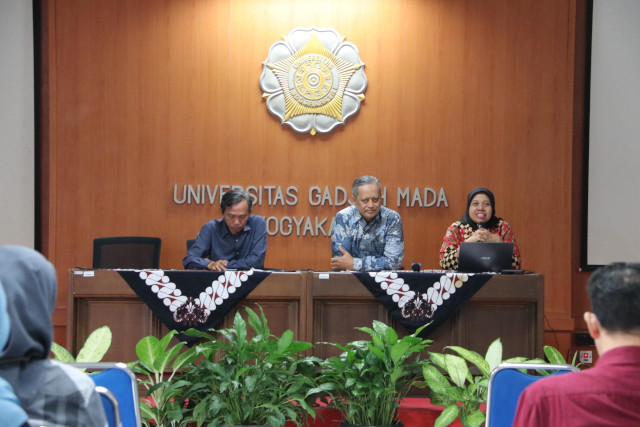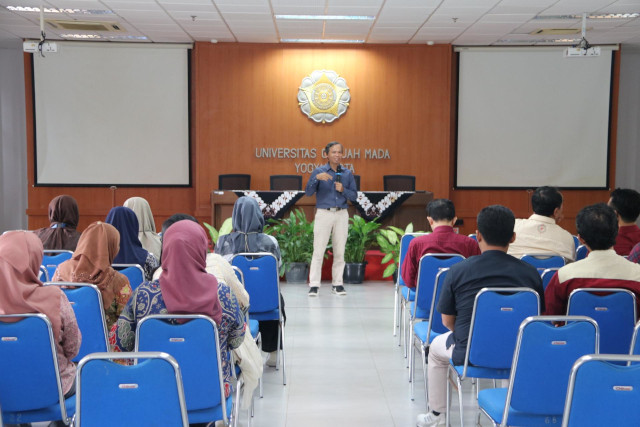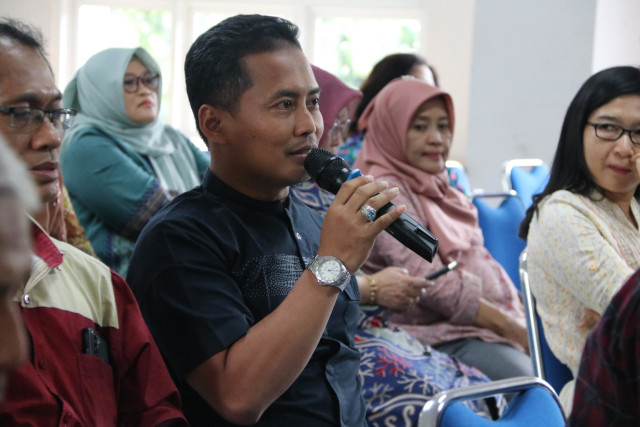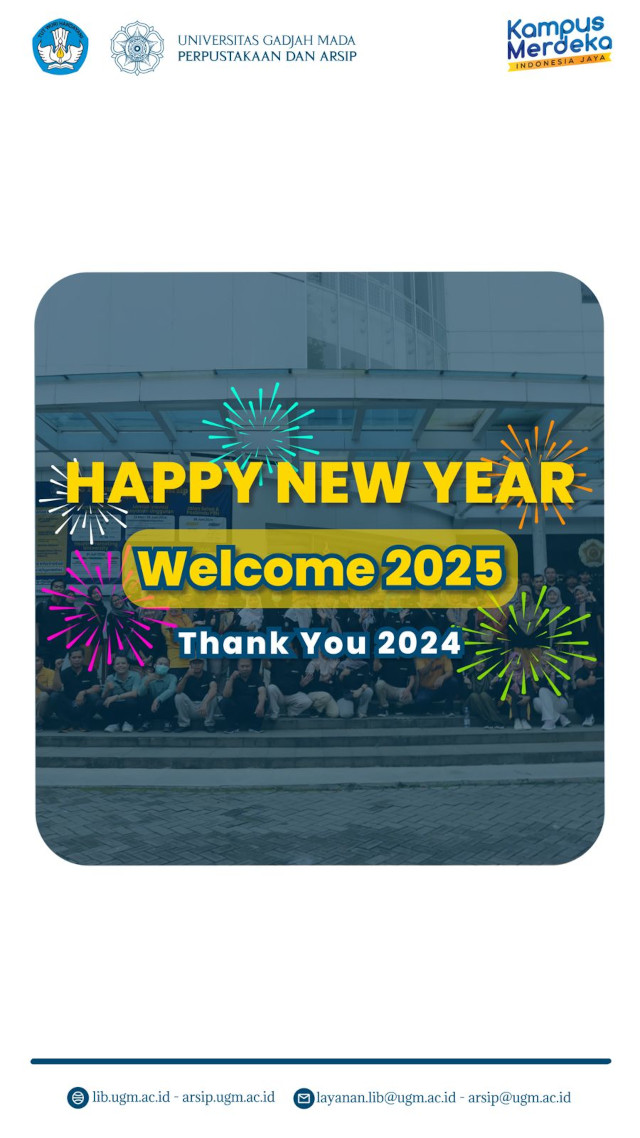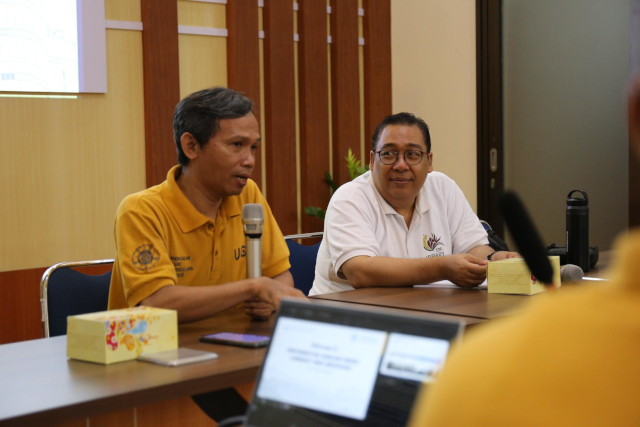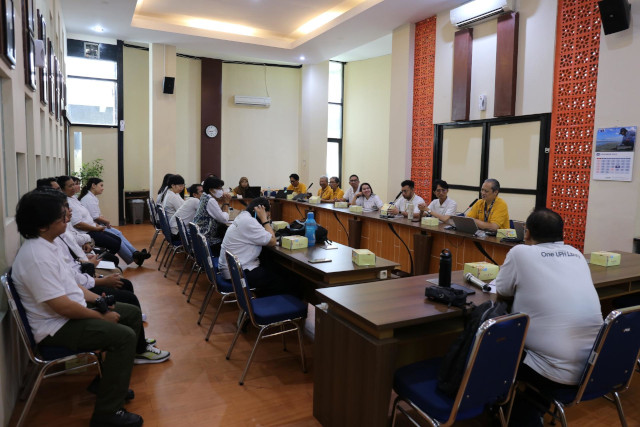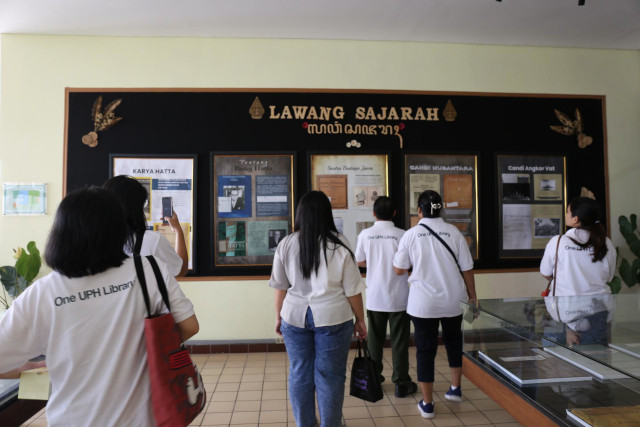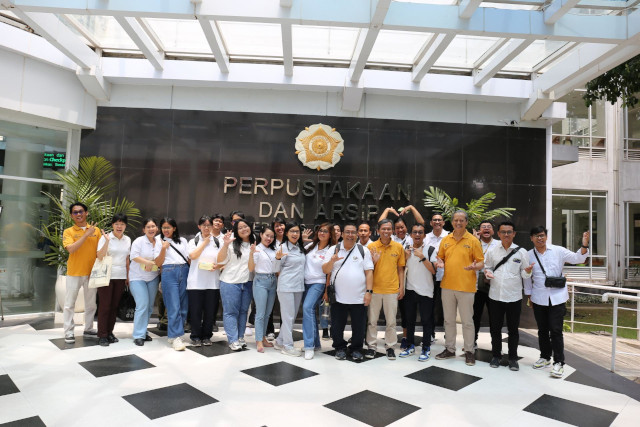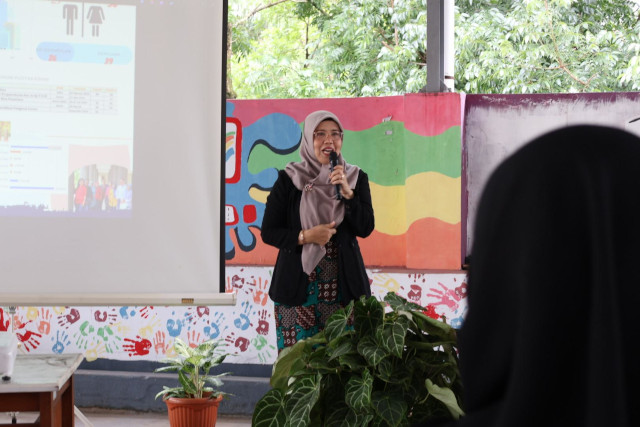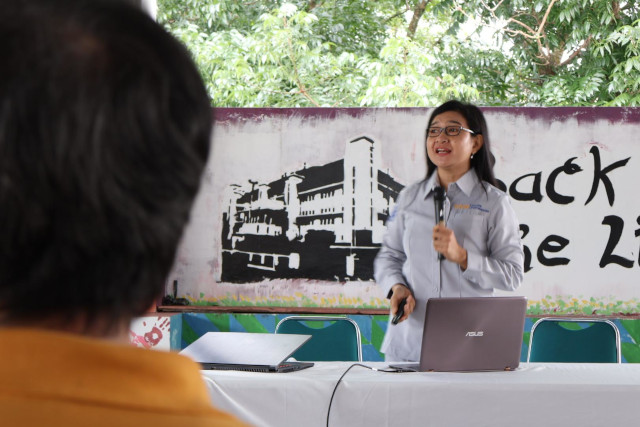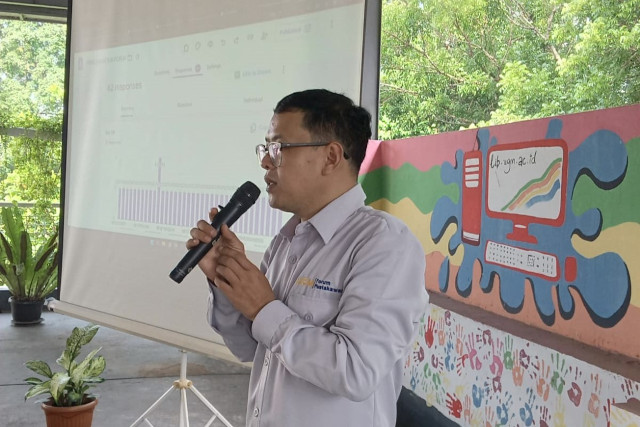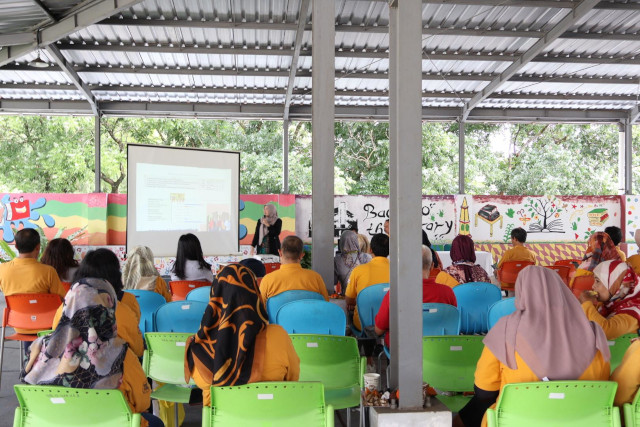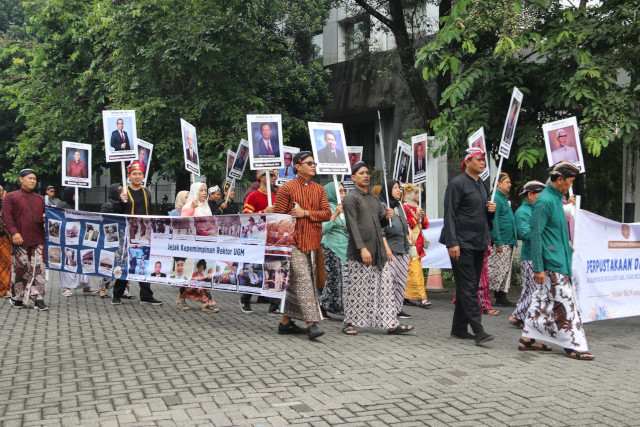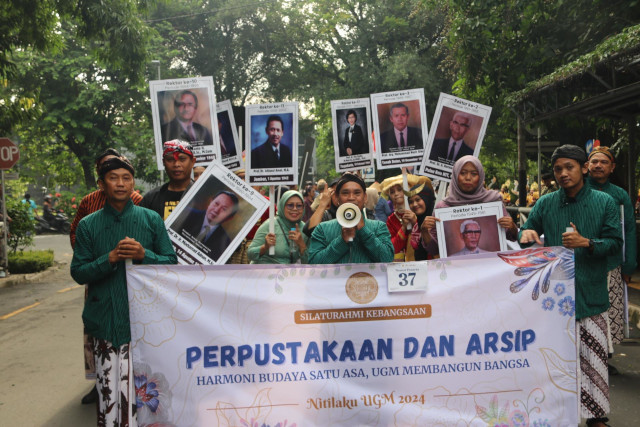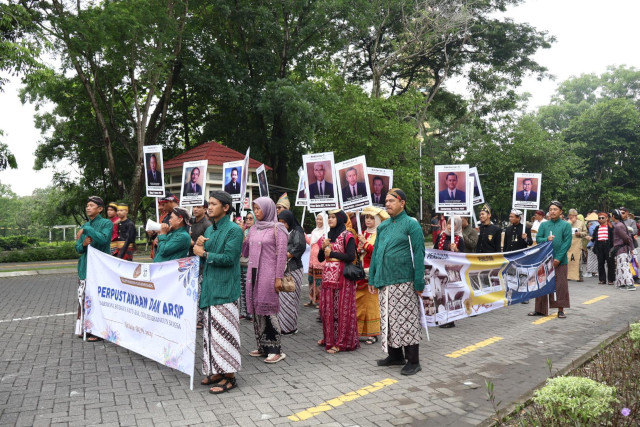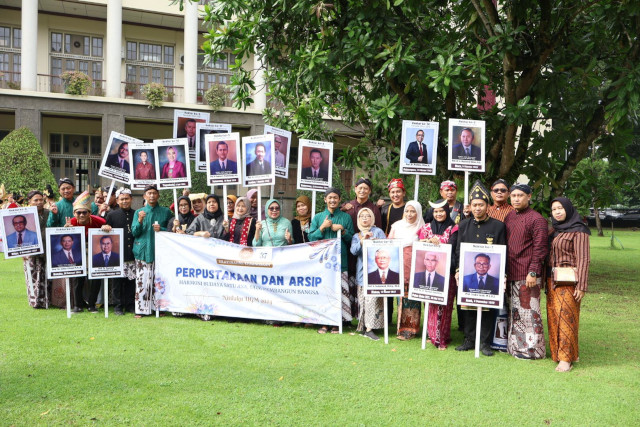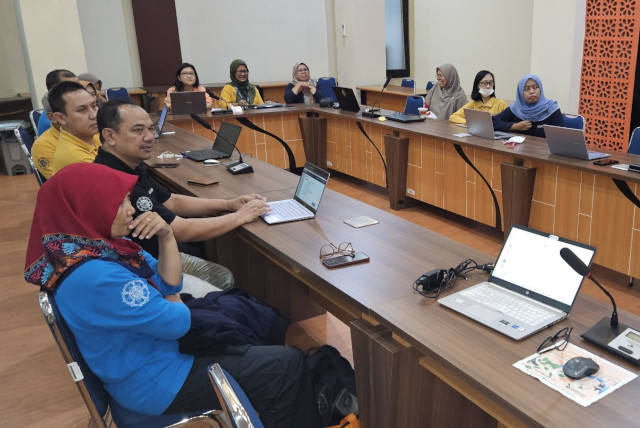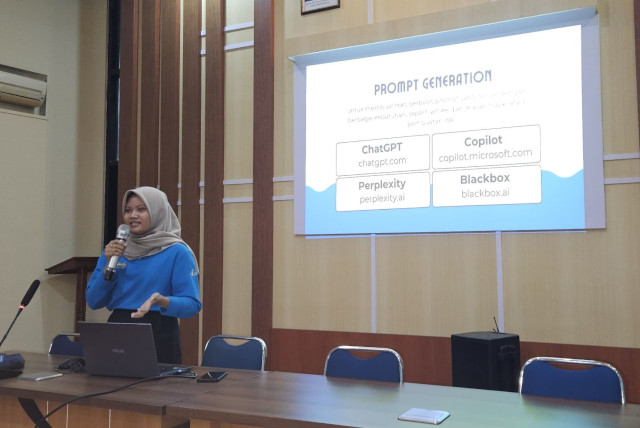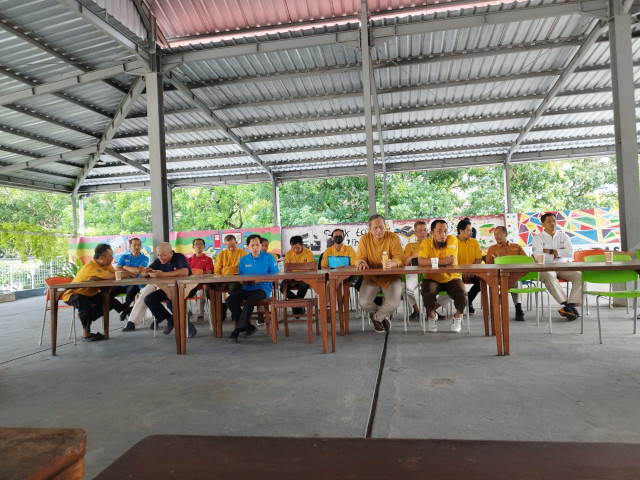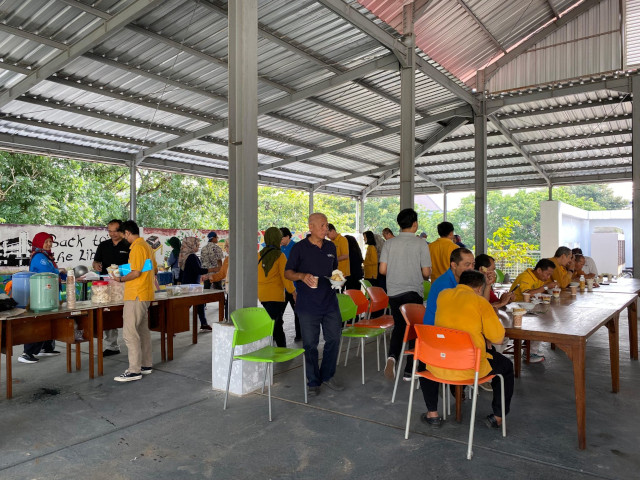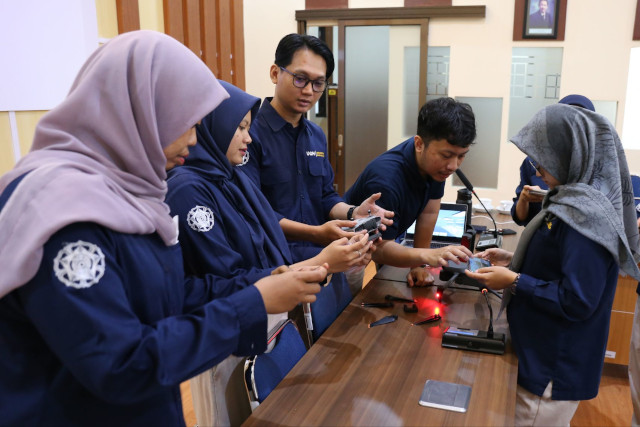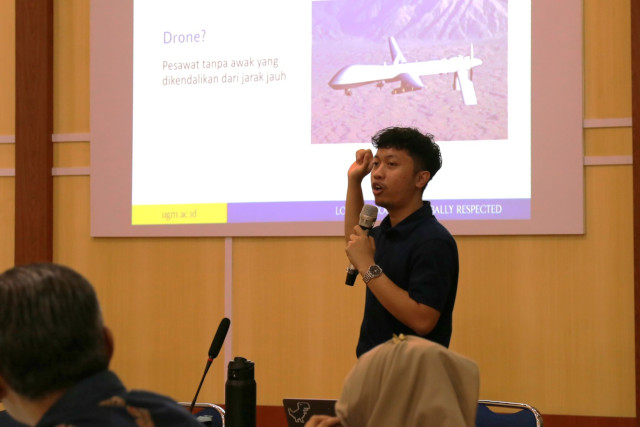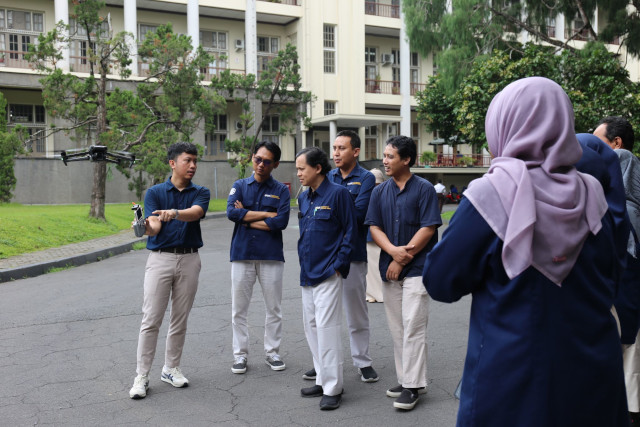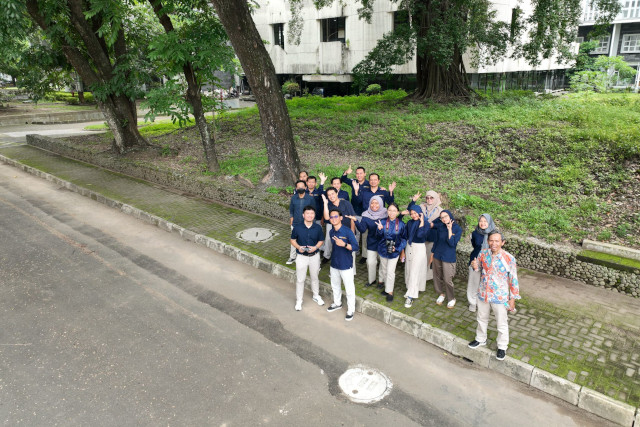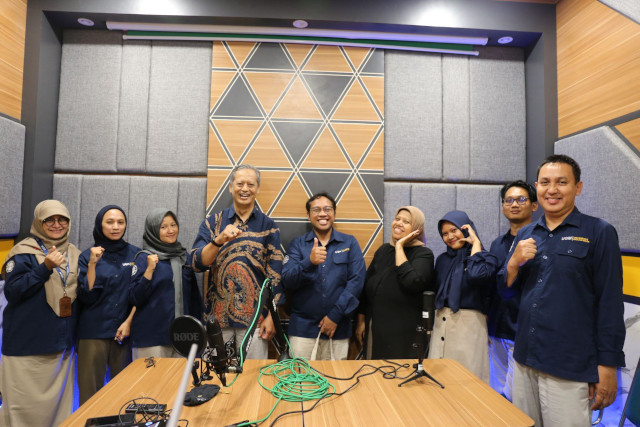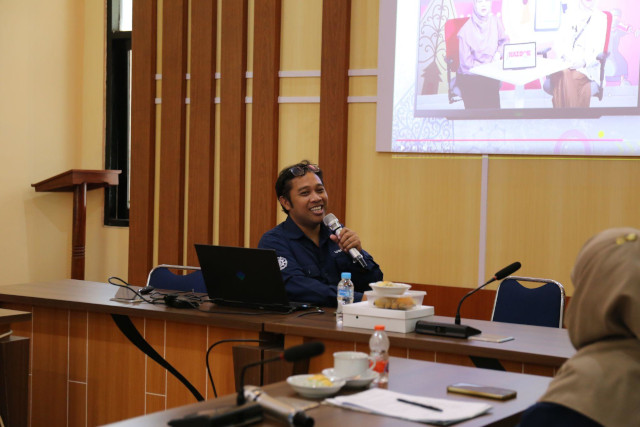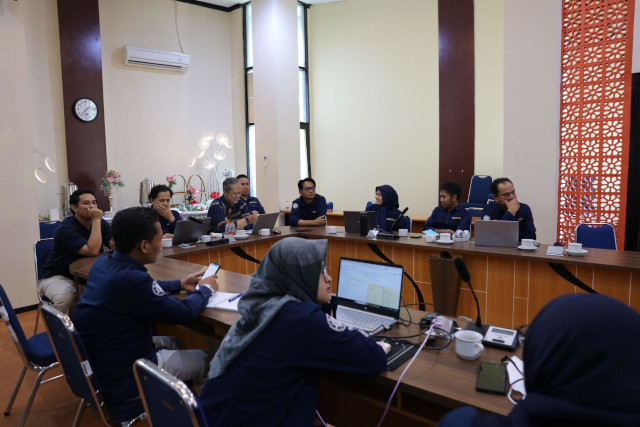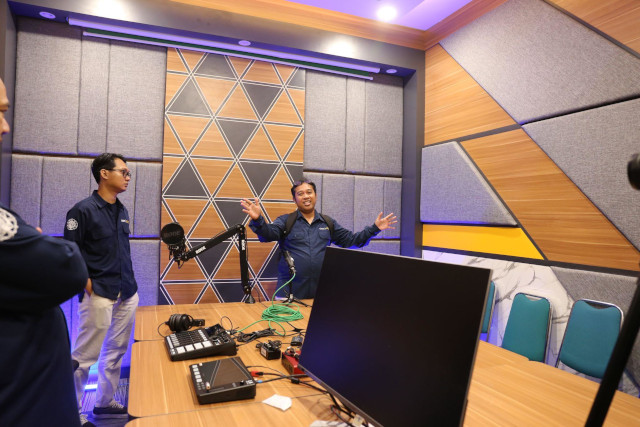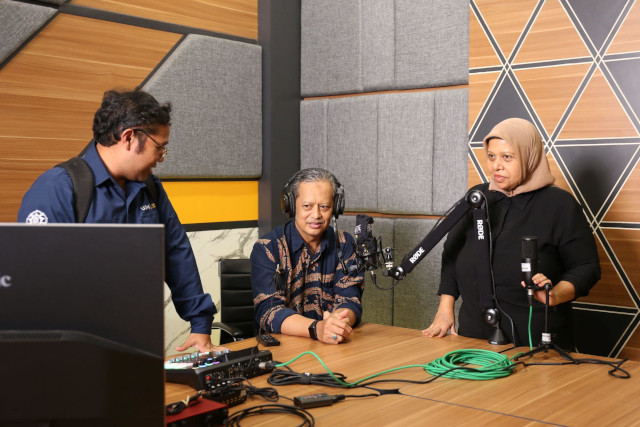Farewell to UGM Library and Archives Staff: Ending a Journey of Service with Cherished Memories
News Thursday, 2 January 2025
An atmosphere of warmth and heartfelt emotion filled the Seminar Room, L1 Building, 2nd Floor, UGM Library and Archives, on Tuesday, December 31, 2024. A farewell event was held to honor one of its senior staff members, Mrs. Marsetyo Wahyu Rudiningsih, affectionately known as Bu Meta, marking the end of her dedicated service spanning more than three decades at Universitas Gadjah Mada (UGM).
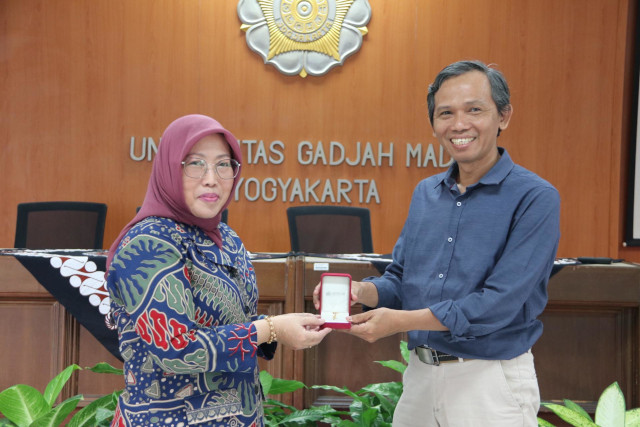
The event began with remarks from the Head of UGM Library and Archives, Arif Surachman, S.IP., M.B.A., who expressed profound gratitude for Bu Meta’s extraordinary dedication over the years. “Bu Meta has been an exemplary figure for all of us, embodying devotion, firmness, and loyalty to this institution. May her retirement be the beginning of a new chapter filled with happiness,” he said.
In her farewell speech, Bu Meta conveyed her gratitude and appreciation to her colleagues for their unwavering support and camaraderie throughout her career. “UGM has been a significant part of my life, and I am deeply grateful to have been part of this incredible journey,” she remarked.
Representatives from each division, including the Archive and Administration Division, the Library Division, and the Data and Information Systems Division, shared their impressions and messages for Bu Meta. The Korpagama group also extended their appreciation and prayers for her future endeavors.
As a token of appreciation, each division presented mementos to Bu Meta, beginning with the Archive and Administration Division, followed by the Library Division, the Data and Information Systems Division, and finally Korpagama. These gestures highlighted the profound impact of Bu Meta’s presence within UGM Library and Archives.
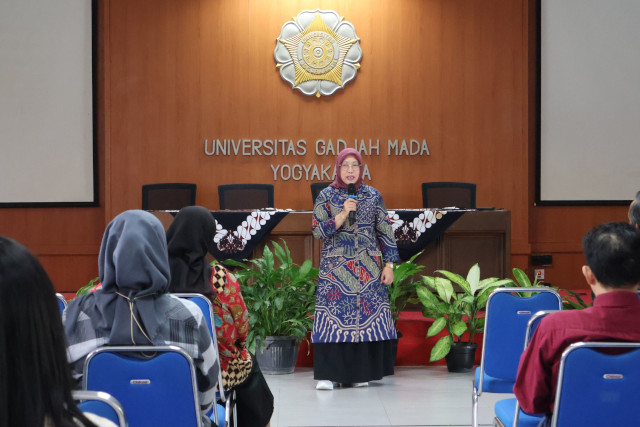
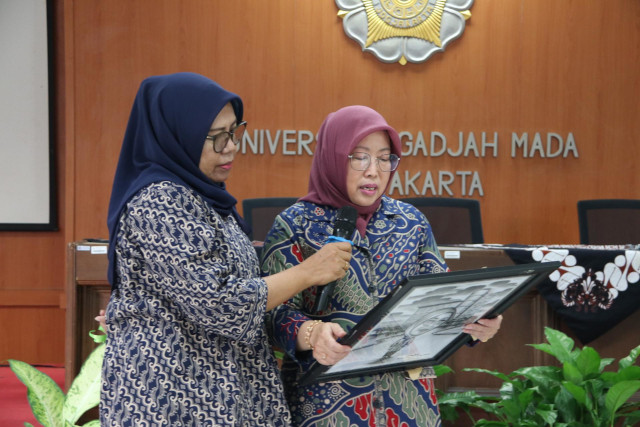
The event concluded with a farewell session, where staff members took turns shaking hands with Bu Meta, offering their respects and well-wishes. The emotional atmosphere was palpable as colleagues shared heartfelt goodbyes, leaving behind fond memories that will be cherished forever.
This farewell aligns with SDG 3: Good Health and Well-being, emphasizing the importance of living a healthy and fulfilling life at every stage. The retirement marks not only the end of Bu Meta’s career at UGM but also the beginning of a new chapter, offering opportunities for personal well-being and happiness.
Congratulations on your retirement, Bu Meta. May you be blessed with health, happiness, and prosperity in every step of your new journey!
Kontributor: Wasilatul Baroroh
